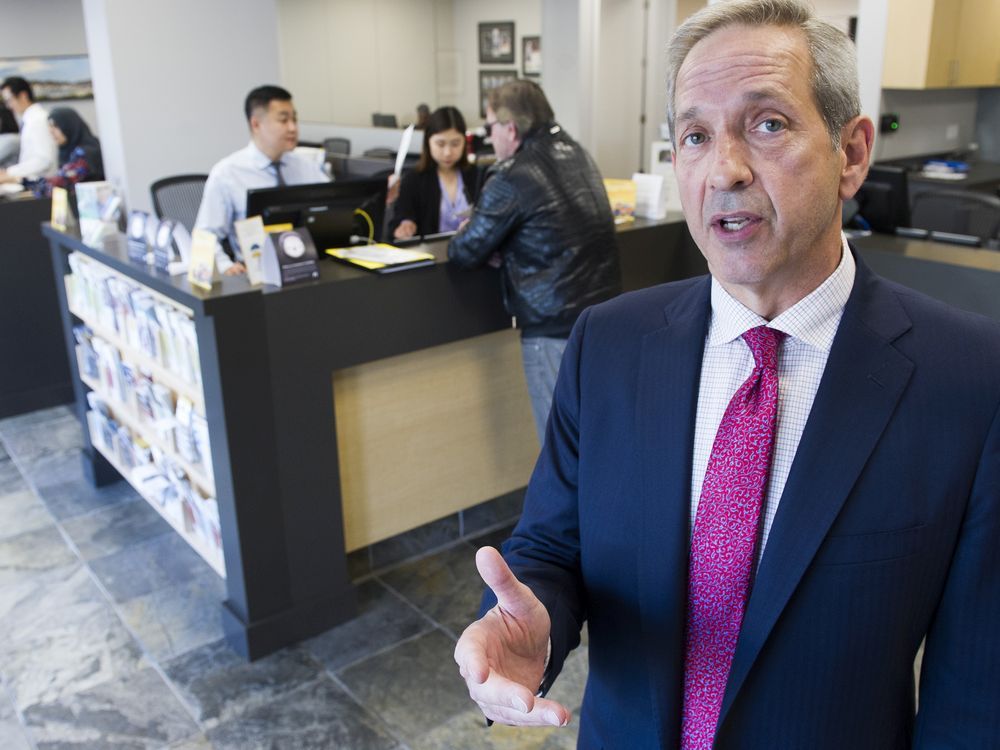Insurance brokers nearly ready to bring on ICBC rate changes

Credit to Author: Derrick Penner| Date: Sun, 11 Aug 2019 22:52:49 +0000
The Insurance Corp. of B.C.’s shift to a driver-based risk model for auto insurance on Sept. 1 will be a radical change for drivers, but not so much for insurance brokers.
“For us, it’s just a different rating algorithm that’s now using drivers’ histories to rate the insurance,” said James Beaulieu, chief operating officer for AllWest Insurance Services Ltd. in Vancouver. For years, ICBC rates have been based on a vehicle’s history.
From the industry’s perspective, the driver-based risk is how insurance is rated “in virtually every other jurisdiction in North America,” Beaulieu said.
He added that the computer systems used don’t even have to change much. “There’s only one more screen, where you are listing drivers,” Beaulieu said.
More than 5,000 of B.C.’s 6,000 insurance brokers have completed a four-hour online training course in applying the new model, said ICBC spokeswoman Joanna Linsangan. Some brokerage firms have been supplementing it with additional training.
“Our job is to make sure that our brokers do know what the changes mean and how to address them with clients,” said Beaulieu at AllWest, which is a member of the Insurance Brokers Association of B.C.
ICBC is making the changes as part of its efforts to shore up the public insurer’s precarious finances. The idea is to shift more of the cost of soaring premiums onto higher-risk drivers and less to lower-risk drivers.
That means giving more weight when pricing insurance to the accident history and the risk of the people who will be driving specific vehicles than to the likelihood of that car model getting into a crash.
Car owners will have to list everyone who will likely be driving their vehicles, right down to bringing names and driver’s-licence numbers when they go to renew their policies.
The insurer didn’t provide complete examples. But Linsangan said a customer with 25 years of driving experience, who lists a second driver with 31 years of experience, would save $189 on their basic insurance. But a principal driver with 12 years of experience who lists a second driver with only three years of driving would face a $148 increase for a one-year basic insurance policy.
Beaulieu said AllWest customers haven’t been calling with a lot of questions about potential sticker shock related to their renewals, such as parents who have to list teenagers as drivers on policies.
More common questions have been around what the Sept. 1 deadline will mean for their policies, Beaulieu said.
For instance, Beaulieu said an AllWest client called recently wanting to know whether she had to add her husband to her insurance because he would be driving the car as well as a relative visiting town, although her policy expires Oct. 31.
The answer was no, not until she has to renew the policy, which would be the case for anyone renewing insurance right up to the end of August 2020.
“This is going to be a full-year transition,” Beaulieu said.
Linsangan said ICBC set up a task force in March of 2018 to support the insurer’s review of its rate design and provide feedback for implementing changes. Implementation has included formal presentations to 2,000 brokers with 1,375 representatives from broker offices sitting in on monthly readiness webinars. She said ICBC also maintains an online broker portal which gives them access to resources and support tools.
“I would say we’re ready,” said Beaulieu. “Now we just need to make sure customers are ready when they come in and actually bring (driver’s licence) numbers.”
CLICK HERE to report a typo.
Is there more to this story? We’d like to hear from you about this or any other stories you think we should know about. Email vantips@postmedia.com.